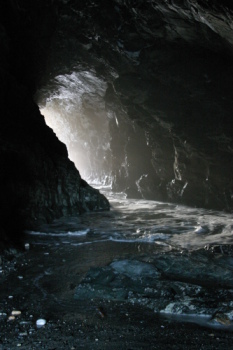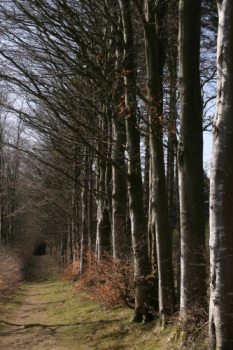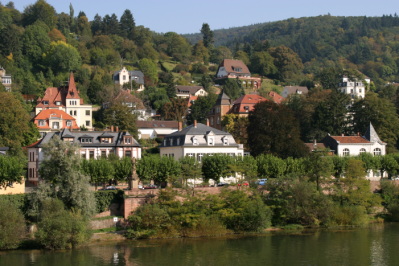Colin's Journal: A place for thoughts about politics, software, and daily life.
December 27th, 2008
The authority of Wikipedia
The relationship between the European Commission and the member states can be a fraught one. Having agreed (usually jointly with the European Parliament) a course of action, it’s not uncommon for the member states to find that actual implementation of such agreements is difficult. This is a common situation with international agreements (see Canada’s ratification of the Kyoto Protocol), but with the EU there’s a built in mechanism to deal with it. The European Commission, among it’s many other duties, can take a member state to court (“infringement proceedings”) and force it to change national law to be compatible with European law. The European courts have pre-eminence over national courts, so individuals as well as the commission can achieve redress (although it’s a long job – multiple years for resolution).
 It’s within this context that the report on the implementation of the Free movement of Persons and Residence: Directive 2004/38/EC needs to be read. The directive itself is mostly a clean up exercise, consolidating the existing fundamental right of freedom of movement for EU citizens and some of the more tricky questions that this right raises (when can an EU citizen be deported? can family members that are non-EU citizen’s travel without a visa?) The report on the implementation of the directive paints a fairly poor picture in terms of implementation.
It’s within this context that the report on the implementation of the Free movement of Persons and Residence: Directive 2004/38/EC needs to be read. The directive itself is mostly a clean up exercise, consolidating the existing fundamental right of freedom of movement for EU citizens and some of the more tricky questions that this right raises (when can an EU citizen be deported? can family members that are non-EU citizen’s travel without a visa?) The report on the implementation of the directive paints a fairly poor picture in terms of implementation.
The tactics adopted by the EC in “steps to be taken” reveal an approach I’ve not seen before. As expected the threat of further action against member states is particularly strongly worded: The Commission will step up its efforts to ensure that the Directive is correctly transposed and implemented across the EU. In order to achieve this result, the Commission will use fully its powers under the Treaty and launch infringement proceedings when necessary.
However, the next step that particularly caught my eye is the use of Wikipedia to directly communicate out the right of freedom of movement:
Member States and the European Parliament are not the only stakeholders with whom the Commission must work intensively. EU citizens must continue to be informed about their rights under the Directive. To this end, the Commission will continue to treat provision of information on the Directive as a priority and will continue to distribute a simplified guide for EU citizens, making the best use of the Internet, mainly through Your Europe portal, the creation of an article on Wikipedia on the right of free movement and simple “factsheets” explaining citizens’ rights.
A search for “Europe freedom of movement” in Google brings up an official Europa site as the second hit, with Wikipedia’s entry 7th in the list. The commission’s decision to create an article in Wikipedia is therefore not simply a matter of addressing the usually poor web presence of the EU’s official bodies. Indeed the information available on the Europa site regarding freedom of movement is easier to read, and summarises the situation far better, than the multiple Wikipedia articles that touch on the subject.
I think this decision to communicate to Europe’s citizens through a US based charity is a reflection of the perceived accessibility of Wikipedia as a source of information. Even though the content is likely to be very similar, an article on Wikipedia penned by the European Commission is deemed to be more accessible than the same material hosted on Europa.
The picture was taken at Hambleton Hall in Rutland.
April 20th, 2008
Wii thoughts
 I’ve recently tried out the BBC iPlayer on our Wii. Overall it’s pretty promising, but not quite there yet. The main good point is the most obvious: being able to watch TV on a TV screen from a comfortable chair at a good distance.
I’ve recently tried out the BBC iPlayer on our Wii. Overall it’s pretty promising, but not quite there yet. The main good point is the most obvious: being able to watch TV on a TV screen from a comfortable chair at a good distance.
The are, however, several downsides. The quality of the codec (Flash 7 at 820Kbit/s rather an Flash 8 at 500Kbit/s) is definitely not as good as under Linux. The lack of full screen support is also annoying, but the top complaint is reserved for the screen saver on the Wii kicking in every 10 mins or so.
A better solution will hopefully come in the form of a dedicated Wii channel, rather than simply supporting play back through the Opera web browser (known as the Internet Channel). The BBC developed free codec Dirac looks like a great candidate for such a deployment (especially following on from the announcement of a fast implementation hitting a 1.0 version). Hopefully the Wii’s processor and graphics are going to be enough to host a good implementation of this (or some other codec) in the future.
In other Wii related news I’ve recently received Zak & Wiki. So far I’ve only made it through the first stage, but things are starting to get interesting. The first few levels were really about introducing the controls (which are simple), but the puzzles later on get more interesting and varied. Having multiple ways of completing a level is also a refreshing feature in a puzzle game.
The picture was taken at Tintagel as the tide came in, thankfully we didn’t stay around long enough to be trapped!
January 5th, 2008
Fire!
 One of my favourite aspects of visiting the US is the common use of wood fires for heating. While using wood for heating doesn’t provide the instant availability and convenience of a gas fire or electric heater, it is immensely satisfying to start a fire with nothing but newspaper and logs. The hard to regulate heat, and indeed the smoke, are all part of the experience.
One of my favourite aspects of visiting the US is the common use of wood fires for heating. While using wood for heating doesn’t provide the instant availability and convenience of a gas fire or electric heater, it is immensely satisfying to start a fire with nothing but newspaper and logs. The hard to regulate heat, and indeed the smoke, are all part of the experience.
I would love to have a wood fire in my own home. The first challenge is, of course, having a home of my own to start with, but a close second is the UK’s Clean Air acts that affects much of the country. There is however some hope. Various wood burning stoves have been tested and are exempt from the restrictions.
Whether I could justify the cost of getting a chimney lined, buying a stove (£800 to £2000 depending on model) and installing it I don’t know. The bigger question at this point is what living with a wood stove would be like. Would it be sufficiently close to the open fire to be worth doing, or could I settle for going outside and using a fire pit?
January 1st, 2008
The year in review
Another New Year, another review of the past twelve months and some crystal ball gazing for the future. 2007 was a fairly successful year for me, although light on earth shattering events (a good thing!). It started with a road trip down through the Cotswolds, all the way to Cornwall and a leisurely meander home via a collection of good hotels and restaurants.
 The spring brought changes at work, as did the autumn. I also had my first trip to Israel, a greater variety of destinations within the UK, but unfortunately no further trips to India. I had my first experience of driving around the continent, clocking up France, Luxembourg, Germany, Holland and Belgium. This was perhaps the highlight of the travel this year, providing a very different experience to visiting places by flying in and out.
The spring brought changes at work, as did the autumn. I also had my first trip to Israel, a greater variety of destinations within the UK, but unfortunately no further trips to India. I had my first experience of driving around the continent, clocking up France, Luxembourg, Germany, Holland and Belgium. This was perhaps the highlight of the travel this year, providing a very different experience to visiting places by flying in and out.
In 2007 I learnt how to create websites with Django, refreshed my website design and coding skills, and created Splash of Wine. The website hasn’t been as successful as I would have liked, however it’s proved a good learning experience and I’ve not yet given up on it entirely.
On other fronts 2007 left me with fewer photographs taken than I would like, and a guitar playing ability that is no different to where I was in 2006. In 2008 I’m planning to improve my ability with the guitar, setting the (easily achievable) goal of being able to play at least one song. The other big event forecast for 2008 is to move home. We’ve enjoyed our stay in the Docklands, but it’s time to find somewhere bigger and cheaper, which given the nature of London means moving further out. Whether we buy or rent again remains to be seen, but I hope to at least start collecting some furniture of our own instead of being in fully furnished flats.
Software
The full list of my published Software
Email: colin at owlfish.com
